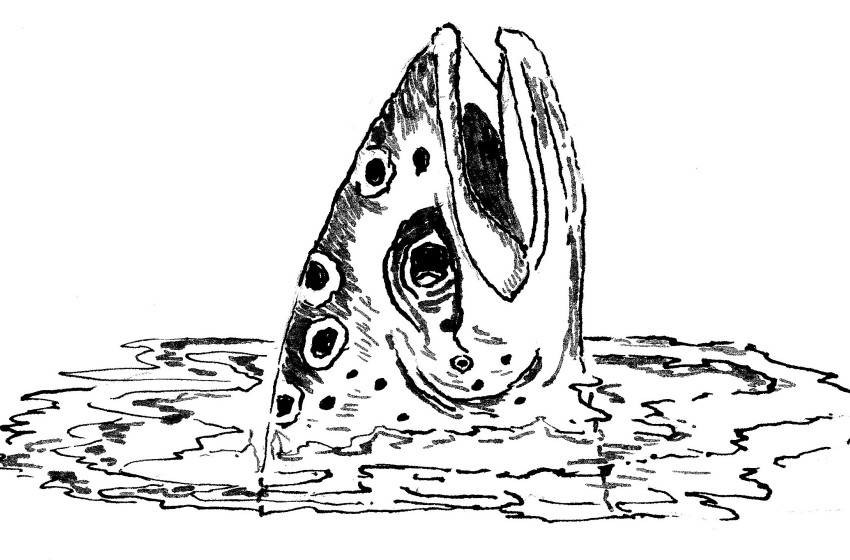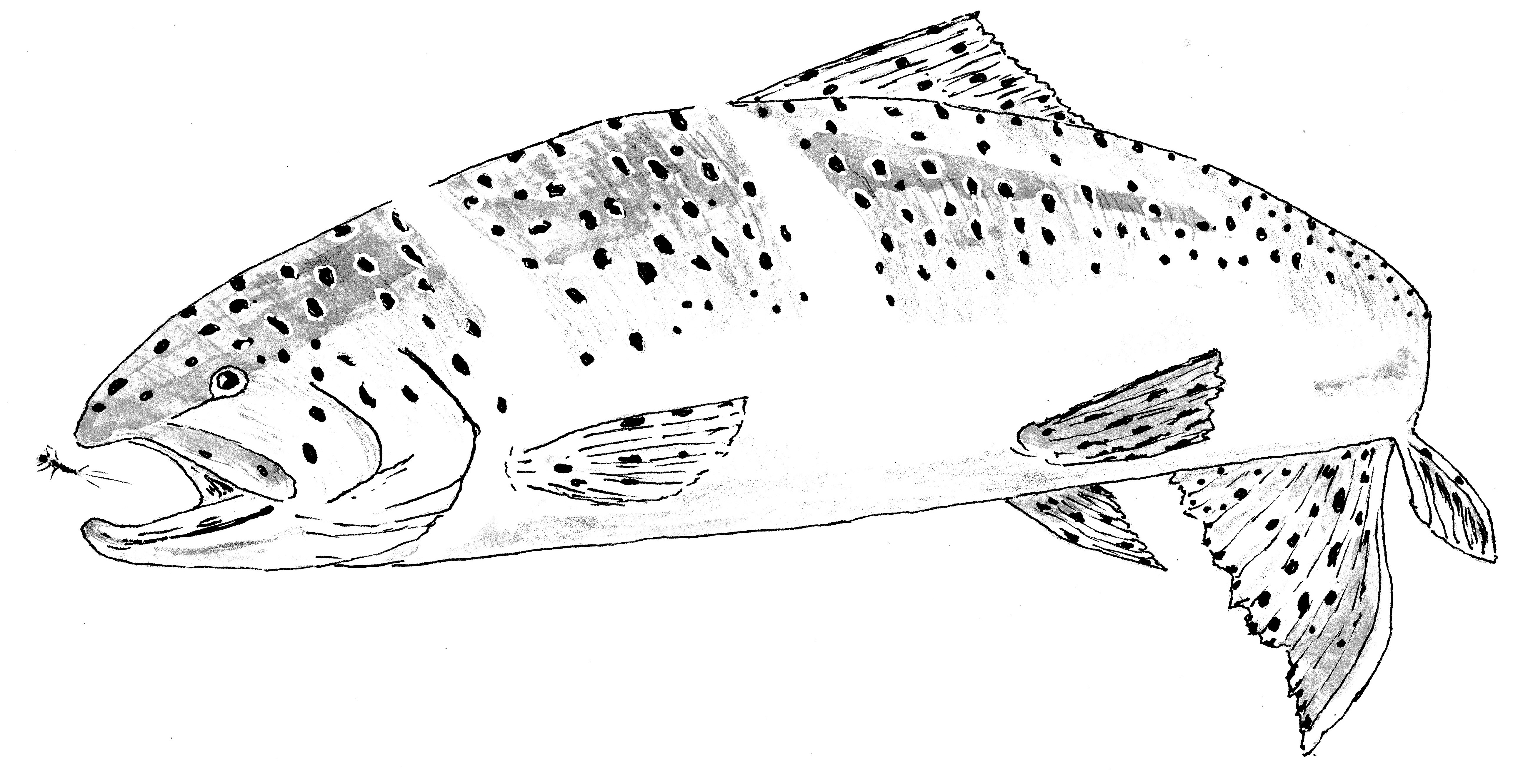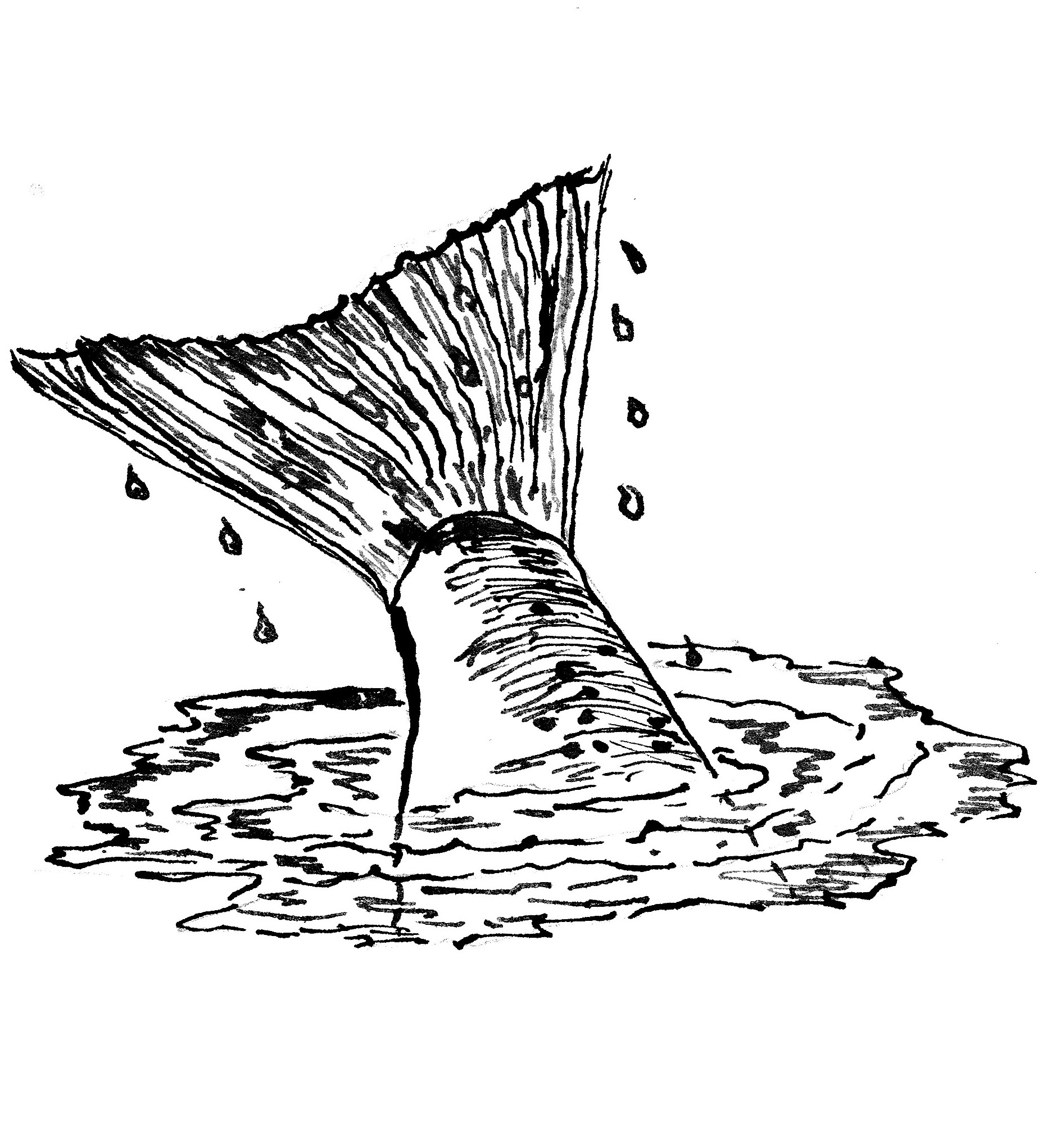Hugh Creasy's column November 2020
- 21/10/2020
- Richie Cosgrove

Perhaps it is the arc of the line flashing in the morning light that lifts the angler’s spirit, the sheer elegance of the cast that grips the imagination.
The cast is an artful action that once mastered opens possibilities. It is the first movement of a dance, or an orchestral piece in which the angler is both conductor and performer, and if played well it ends in dramatic fashion with the choice of life or death.
The cast begins it all. It is an overture that done well will bring reward.
Anglers, though, are only human and we will hit plenty of bum notes before dropping a fly in the right place, or even choosing the right fly to begin with.
 In my efforts to master the art I used to practice on the local sports ground.
In my efforts to master the art I used to practice on the local sports ground.
The grass was mowed on Tuesdays and Fridays and with the grass well trimmed I was able to imagine myself on river or lake and concentrate on the basics.
Raise the rod to midday, pause to let the line unfold then push the rod forward in imitation of hammering a nail to a wall.
After a few months I was able to extend my repertoire to side casts, steeple casts, roll casts and all those instinctive actions that will put a fly in the right place to take a fish.
I was also able to false cast a full 30 metres of flyline, and keep it in the air until the moment was right to release.
I was inspired by an exhibition of casting by an American woman of slight build who was brought to New Zealand by a fly line manufacturer.
She gave an exhibition on the shores of Lake Taupo.
By using only her arm, and without a rod, she cast a full line onto the lake, plus a few metres of backing.
With a rod she was a magician, and with a twist of her wrist was able to curl a line to the left or right, she dropped a fly on the water without a splash, fly first and then the line.
Her roll casts gained metres and the fly always landed at the full extension of the line until she needed a cast with slack to allow the current to present a natural drift.
It was all done with ease and aplomb, and at the end of the exhibition she was driven away, leaving an audience, mouths agape with admiration.
While, at the time, I envied those who could afford quality waders and expensive rods and reels, I realised that luxury does not always equate with competence, and I contented myself with what I could buy on special.
A reel was simply a tool to hold line and as long as it had a reasonably smooth action its price was no indicator of its usefulness.
 A cheap rod might require more effort to get a result, but it should be remembered that anglers of yesteryear used greenheart rods and silk lines and they caught plenty of fish.
A cheap rod might require more effort to get a result, but it should be remembered that anglers of yesteryear used greenheart rods and silk lines and they caught plenty of fish.
Waders were a luxury so I used plastic rubbish bags, taped above the knee with insulation tape and gardening boots made for reasonably safe wading.
After a few months of near fanatical persistence I began to catch fish, then I could approach a river, confident that I would be taking home a fish if I wanted one.
After a few seasons I realised that I was getting more satisfaction from visiting the places I went to go fishing than from catching fish.
The hunt became the objective and the exercise of skill in bringing a fish to the net became icing on the cake.
Hunting of any sort hones instincts.
To capture prey requires a knowledge of its behaviour and you come to realise that the creature you are hunting is a hunter itself, so you need to know the habits of the creatures it preys upon.
The life of a river has its seasons.
The hatches of insects in spring and summer in a healthy river are obvious and with a little research the tyro angler will learn to match the hatch, but in the hotter months and in the depths of winter there may be no obvious signs.
Imagination has its place, and you must think of where trout are likely to seek refuge.
In summer it will be where the water is well oxygenated and in winter the fish may go deep and seek backwaters where heavy currents will not exhaust its strength.
Don’t be intimidated by the angler who has everything.
Fancy waders and hotshot rods don’t catch fish.
Skilful anglers do, and if you have to hone your skills on a football field, it will be worth the embarrassment when you get to the river.